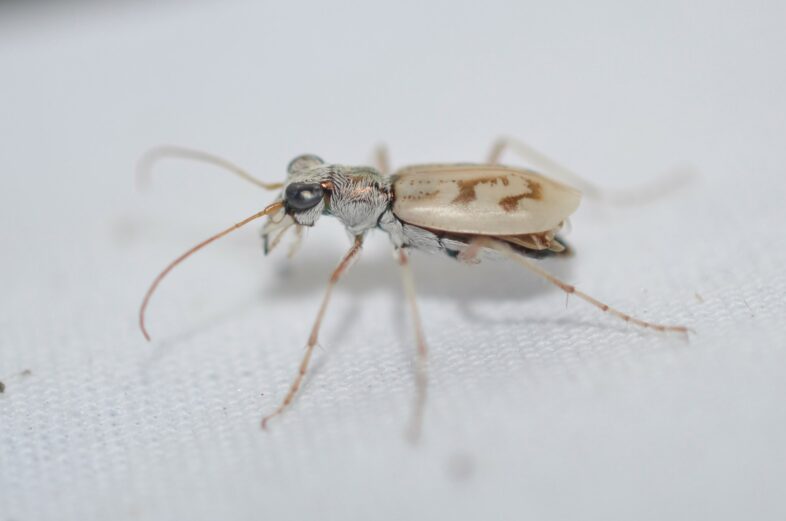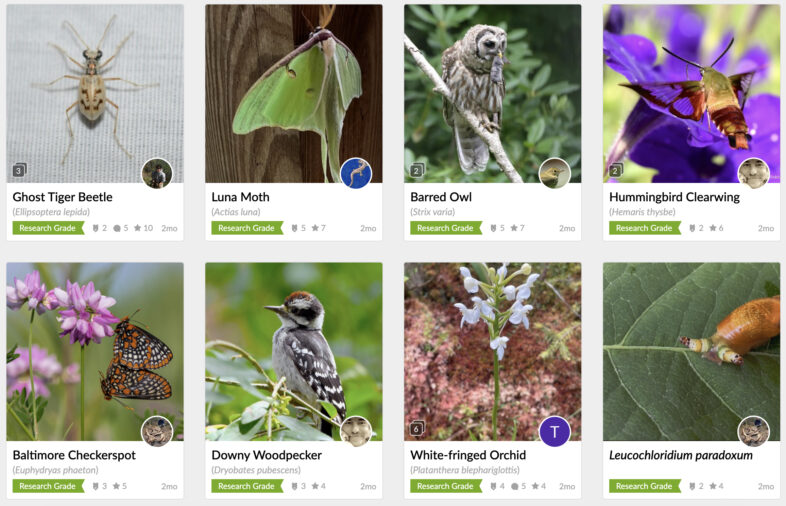
Ghost Tiger Beetle (Ellipsoptera lepida) visiting a moth light and photographed by Larry Clarfeld.
Congratulations to Larry Clarfeld for winning the July 2024 Photo-observation of the Month for the Vermont Atlas of Life on iNaturalist! His photo of a Ghost Tiger Beetle (Ellipsoptera lepida) visiting a sheet at his moth light received the most faves of any iNaturalist observation in Vermont during the past month. Tiger beetles have been fairly well-studied in the state, yet this is the first record for this species for Vermont!
Named for their light to white coloration, the Ghost Tiger Beetle is considered ‘vulnerable’ to extinction globally. It requires bare and deep sandy areas, such as dunes or shorelines, which are patchily distributed across its range. These sandy habitats are often lost to development or degraded, which has resulted in population loss and declines.
Adults emerge in the summer (as early as mid-June) and begin hunting, mating, and laying eggs. They are usually gone by the end of August. The larvae burrow deeper (5-10 feet) than most other tiger beetle species and require deep, loose, and sparsely vegetated sandy areas.
Although we don’t yet know if there is a breeding population in Vermont, there are areas of potential habitat near this sighting. Adults are known to come to lights at night up to a mile or two from their habitat and they are known to colonize new, artificial habitats up to 30 miles away. Next year we will visit some potential habitat in the region and see if we can find a small population of these amazing beetles.

With 21,619 photo-observations submitted by 1,745 observers in July, it was very competitive. Click on the image above to see and explore all of the amazing observations.
Visit the Vermont Atlas of Life on iNaturalist where you can vote for the winner this month by clicking the ‘fave’ star on your favorite photo-observation. Make sure you get outdoors and record the biodiversity around you, then submit your discoveries and you could be a winner!
